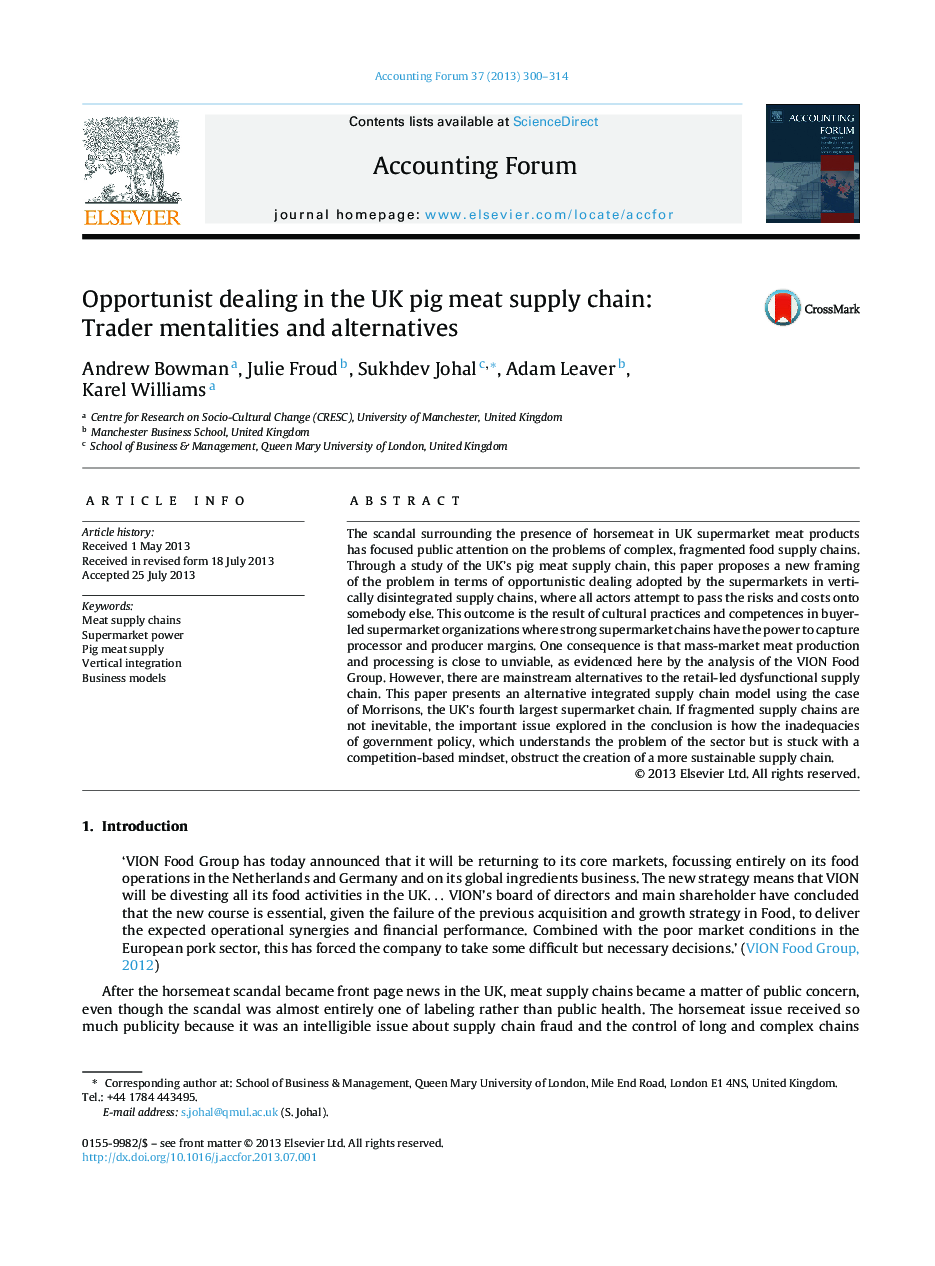| Article ID | Journal | Published Year | Pages | File Type |
|---|---|---|---|---|
| 10489294 | Accounting Forum | 2013 | 15 Pages |
Abstract
The scandal surrounding the presence of horsemeat in UK supermarket meat products has focused public attention on the problems of complex, fragmented food supply chains. Through a study of the UK's pig meat supply chain, this paper proposes a new framing of the problem in terms of opportunistic dealing adopted by the supermarkets in vertically disintegrated supply chains, where all actors attempt to pass the risks and costs onto somebody else. This outcome is the result of cultural practices and competences in buyer-led supermarket organizations where strong supermarket chains have the power to capture processor and producer margins. One consequence is that mass-market meat production and processing is close to unviable, as evidenced here by the analysis of the VION Food Group. However, there are mainstream alternatives to the retail-led dysfunctional supply chain. This paper presents an alternative integrated supply chain model using the case of Morrisons, the UK's fourth largest supermarket chain. If fragmented supply chains are not inevitable, the important issue explored in the conclusion is how the inadequacies of government policy, which understands the problem of the sector but is stuck with a competition-based mindset, obstruct the creation of a more sustainable supply chain.
Keywords
Related Topics
Social Sciences and Humanities
Business, Management and Accounting
Accounting
Authors
Andrew Bowman, Julie Froud, Sukhdev Johal, Adam Leaver, Karel Williams,
